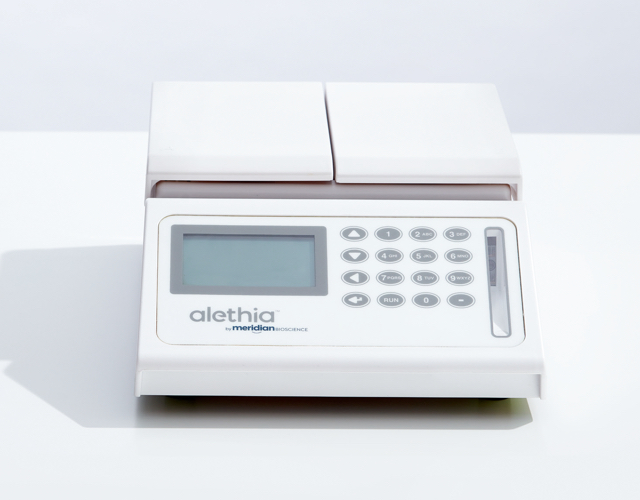Definitive answers, confidence in results
Definitive answers, confidence in results
Related Tests
- Healthcare Acquired Infections Alethia® C. difficile
- Pediatric & Neonatal Alethia® CMV Alethia® Group B Streptococcus
- Respiratory Alethia® Mycoplasma Direct Alethia® Pertussis Alethia® Group A Streptococcus
- Sexual Health Alethia® HSV 1&2
Support & Documents
Downloadable PDFs
Webinars & Videos
FAQs
Studies have shown that testing within four weeks of delivery is most accurate at predicting GBS colonization status at delivery. The 2020 guidelines published by the American College of Obstetricians and Gynecologists (ACOG) state that screening should be done between 36-38 weeks of gestation.
Broth enrichment greatly enhances the recovery of GBS thus improving the sensitivity. The 2010 CDC guidelines state that all samples must be enriched in broth media for 18-24 hours. For GBS disease, an accurate screening result is far more important than a rapid screening result.
The majority of infants that develop GBS disease are born to mothers who tested negative for Group B Streptococcus. This is due in large part to false-negative culture results. The sensitivity of culture is unreliable and is documented to be as low as 42%. The lack of sensitivity can be attributed to several factors including: Subjectivity, 4% of GBS isolates are nonhemolytic and therefore are undetectable on the culture plate, Overgrowth of normal flora can inhibit the ability to identify GBS colonies.
Based on the recommendations of the CDC, all vaginal-rectal swabs must be inoculated in selective enrichment broth first and incubated for 18-24 hours prior to performing any molecular test.
Recommended by CDC guidelines:
- Sensitivity of 98.6% means fewer false negatives
- Eliminates all subjectivity related to traditional culture methods
- Definitive, accurate answers mean appropriate therapy can be administered at delivery, if needed
Alethia Group B Streptococcus – 87653
Broth Culture – 87081
1.Department of Health and Human Services, Centers for DiseaseControl and Prevention. Prevention of Perinatal Group B Streptococcal Disease, Revised Guidelines from CDC, 2010.MMWR 2010;59.
2.M. Van Dyke, Ph.D., et al. 2009. Evaluation of Universal Antenatal Screening for Group B Streptococcus. The New England Journal of Medicine. 360: pp. 2626-2636.
3.F. Rallu, P. Barriga, C. Scrivo, V. Martel-Laferriere, and C. Laferriere.2006. Sensitivities of Antigen Detection and PCR assays Greatly Increased Compared to that of the Standard Culture Method for Screening for Group B Streptococcus Carriage in Pregnant Women.Journal of Clinical Microbiology. 44: pp. 725-728.
4.CDC website, https://www.cdc.gov/groupbstrep/clinicians/QAs-obstetric.htm
Pricing
To order, contact your regional sales representative or use the following contact information:
- Email: sales@meridianbioscience.com
- Phone: +1 800 696-0739
- International Sales Extension: +1 513 271-3000

